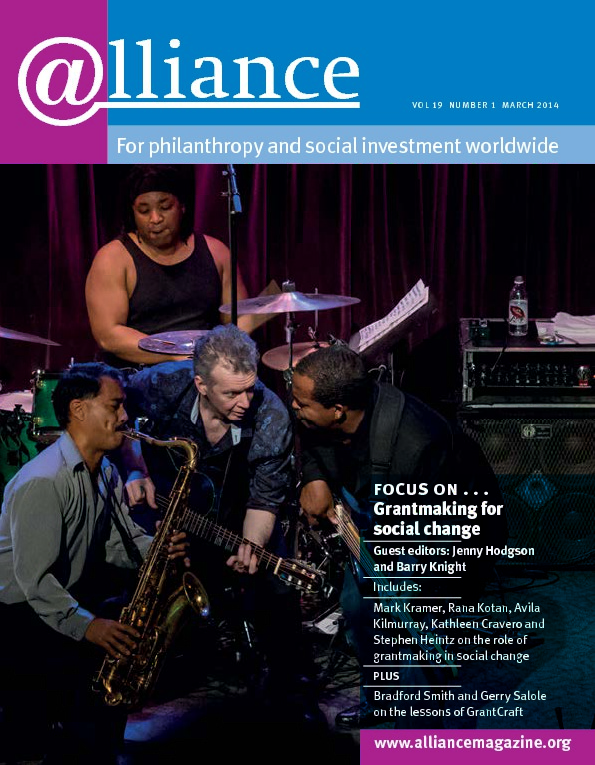When authoritarian regimes collapse or wars end, the world pays attention. These are pivotal historical moments offering possibilities of social, economic and political transformation that would be unimaginable in the midst of conflict or repression.
A legacy of ‘failed’ transitions from Somalia to Iraq to Afghanistan has led some funders to conclude the risks are too high for philanthropy to become engaged. This cautionary approach has already hurt prospects in some Arab spring countries.
Yet there are scores of cases in which private philanthropy is associated with positive transformative change, from Eastern Europe to West Africa, from South America to South Asia. Drawing on decades of experience within the sector, the newly published Supporting Countries in Transition: A framework guide for foundation engagement pulls together the key lessons and new ideas to guide current and future practice.
Based on private philanthropy’s unique comparative advantages, the guide presents a tailored paradigm of ‘informed risk-taking’ for donor grantmaking. Its advice is straightforward: ‘Whatever one’s normal threshold, in a transition be prepared to take more risks but assess those risks with greater than usual scrutiny and frequency.’
Private funders have far greater independence and flexibility with their funds than governments and other publicly accountable bodies. They can respond to opportunities more quickly than large bilateral and multilateral donors. In addition, due to the smaller scale of their financial resources, they have a greater interest in being creative and catalytic in their funding.
For private foundations and other philanthropic actors to make the most of the opportunities that transitions present, they need to think and act differently, knowing that the bets that succeed offer the chance for a depth of impact that may surpass decades of investments in non-transitional settings. In a period of turbulent but historic change in the Arab region and elsewhere, private funders can achieve extraordinary things if they act on their comparative advantages and the now-consolidated lessons of the past.






Comments (0)